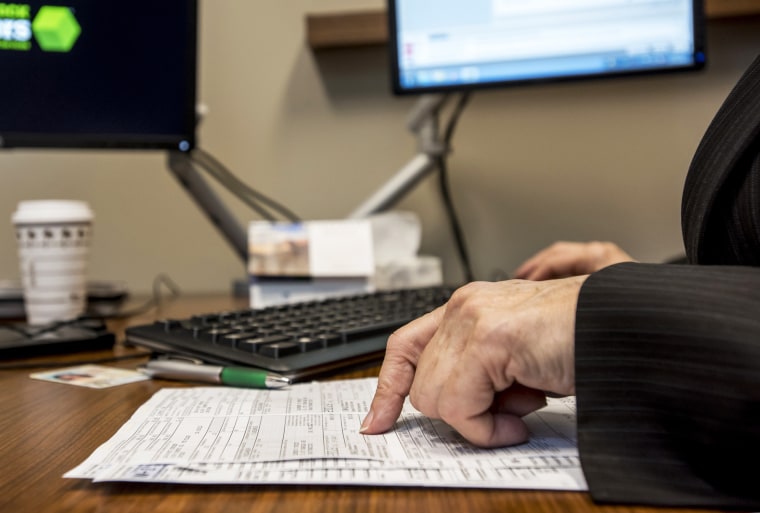Welcome to The Data Point, a series from the NBC News Data Graphics team that explains a slice of the latest news through charts and visuals.
Three things are certain in life: death, taxes and people waiting till the last minute to file their tax returns.
On average, about 29 percent of individual tax returns are received in the three weeks leading up to Tax Day, or about 43 million returns, according to an NBC News analysis of data from the IRS.
There may be more last-minute filers this year. Just 91 million returns had been filed through the end of March, down by about 12.2 million from 2019, or 12 percent, according to pre-pandemic tax data. The IRS will typically accept tax returns in late January; last year it had a late start of Feb. 12.
The Covid-19 pandemic and the subsequent recession have scrambled tax deadlines in recent years. In 2020, the federal government extended the filing deadline from its traditional April 15 to July 15. Last year, the deadline was moved to May 17.
This year’s deadline was moved by three days, to Monday, April 18, because the main IRS office in Washington will be closed Friday in observance of Emancipation Day in D.C.
Taxpayers in Maine and Massachusetts have until April 19 because of the observance of Patriot’s Day, a holiday commemorating the battles of the American Revolutionary War.
In addition to the last-minute filers, about 12 percent of taxpayers submit returns within the first week the IRS begins accepting them, while an additional 11 percent on average file late with extensions after Tax Day.
